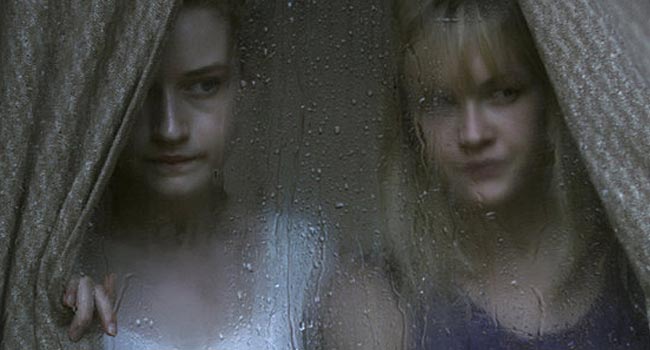
Mickle’s film is driven by atmosphere and mystique, more concerned with creeping you out than making you hurl.

Mickle’s film is driven by atmosphere and mystique, more concerned with creeping you out than making you hurl.
Jim Mickle loosely remakes Jorge Michel Grau’s 2010 horror flick, Somos lo Que Hay, with We Are What We Are, an American Gothic mutation of Grau’s well-received tale about a family of cannibals. More family drama than gore fest, Mickle’s film is driven by atmosphere and mystique, more concerned with creeping you out than making you hurl…until the abominable grand finale, that is.
The film opens in a small town outside of the Catskills, with Emma Parker (Kassie DePaiva), the matriarch of the cannibalistic Parker family, dying of a freak accident, leaving behind her husband, Frank (Bill Sage), teenage daughters Isis (Ambyr Childers, The Master) and Rose (Julia Garner, Martha Marcy May Marlene), and young son, Rory (Jack Gore) to carry out their creepy family traditions, the ambiguously religious origins of which are revealed in time. Mama Parker was responsible for preparing a ritualistic mortal gumbo for the family to chomp on, so now the burden of the slaughter falls on the shoulders of the eldest daughter, Isis. Papa Parker drags home a hapless victim for Isis to butcher, but she and Rose (constantly frazzled and paranoid) begin to buckle under the immense gravity of the task at hand when they discover that the poor soul they’re meant to mutilate is a girl from school.
Frank is a menacing man of few words, unpredictably snapping in bursts of rage, employing intimidation (both physical and psychological) to raise his children. Sage is eerily understated and an imposing force of nature, evoking a sense of tight-lipped dread–you’ll be on edge every second he’s on screen. Garner and Childers, both exceedingly talented for their age, put forth absolutely heartbreaking performances, though, to no fault of their own, their wholesome, Disney-kid good looks seem to sap the terror out of certain scenes, perhaps because their beauty distracts from the grisly atmosphere rather than juxtaposing it. Tarantino favorite Michael Parks is as dependable as ever, playing a good-hearted doctor who begins to catch on to the Parkers’ bloody history as he finds “clues” (i.e. human remains) floating down the flooded river, and his encounter with Mr. Parker when he finally puts the pieces together is the best scene of dialog in the film.

For the most part, Mickle uses the same quiet, lingering creepiness that pervades Martha Marcy May Marlene (much of his crew worked on that film, as well), allowing the stillness and ambiance of the moment to buzz in your ear a bit, needling at your nerves. Oddly, there are certain scenes that would have been elevated by this “silent treatment” (most notably the spectacularly gory ending), but instead have bizarrely melodramatic music plastered all over them, muffling the shocking immediacy of it all. In the films most egregious dip in artfulness, an inexplicable sex scene (it’s so out of the blue you’ll laugh) cartoonishly screeches to a halt with a splash of Platinum Dunes-style gore. Against the palpable, pitch black atmosphere Mickle and company create, the sequence feels a little silly, though the stumble doesn’t hurt the film all that much.
The Parker household–and the entire film, in fact–feels of another time, with candlelight flickering against the deep shadows of its corridors, contrasting brilliantly with the biblical rainstorms pouring outside the windows. There’s a not-so-subtle knock on fundamentalist religion that’s ever-present in the film, but the storytelling is effective whether you choose to digest it as a religious parable or not. Mickle and his crew deserve a lot of credit (especially cinematographer Ryan Samul) for exercising a great measure of finesse and deliberateness in crafting We Are What We Are, which could have easily become a throw-away jump-scare machine in less caring hands. Though the Salo-level gore of the final act doesn’t repulse so much as it confounds, the well-executed slow burn that leads us to it is worth the price of admission.